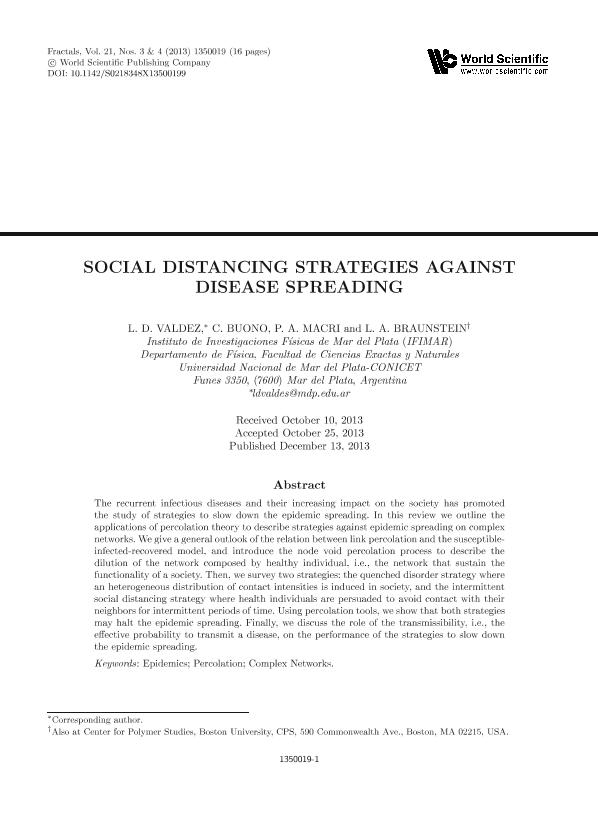Artículo
Social distancing strategies against disease spreading
Fecha de publicación:
12/2013
Editorial:
World Scientific
Revista:
Fractals
ISSN:
0218-348X
Idioma:
Inglés
Tipo de recurso:
Artículo publicado
Clasificación temática:
Resumen
The recurrent infectious diseases and their increasing impact on the society has promoted the study of strategies to slow down the epidemic spreading. In this review we outline the applications of percolation theory to describe strategies against epidemic spreading on complex networks. We give a general outlook of the relation between link percolation and the susceptible-infected-recovered model, and introduce the node void percolation process to describe the dilution of the network composed by healthy individual, i.e., the network that sustain the functionality of a society. Then, we survey two strategies: the quenched disorder strategy where an heterogeneous distribution of contact intensities is induced in society, and the intermittent social distancing strategy where health individuals are persuaded to avoid contact with their neighbors for intermittent periods of time. Using percolation tools, we show that both strategies may halt the epidemic spreading. Finally, we discuss the role of the transmissibility, i.e., the effective probability to transmit a disease, on the performance of the strategies to slow down the epidemic spreading.
Palabras clave:
Epidemics
,
Percolation
,
Networks
Archivos asociados
Licencia
Identificadores
Colecciones
Articulos(IFIMAR)
Articulos de INST.DE INVESTIGACIONES FISICAS DE MAR DEL PLATA
Articulos de INST.DE INVESTIGACIONES FISICAS DE MAR DEL PLATA
Citación
Valdez, Lucas Daniel; Buono, Camila; Macri, Pablo Alejandro; Braunstein, L. A.; Social distancing strategies against disease spreading; World Scientific; Fractals; 21; 3; 12-2013; 1350019-1350035
Compartir
Altmétricas




